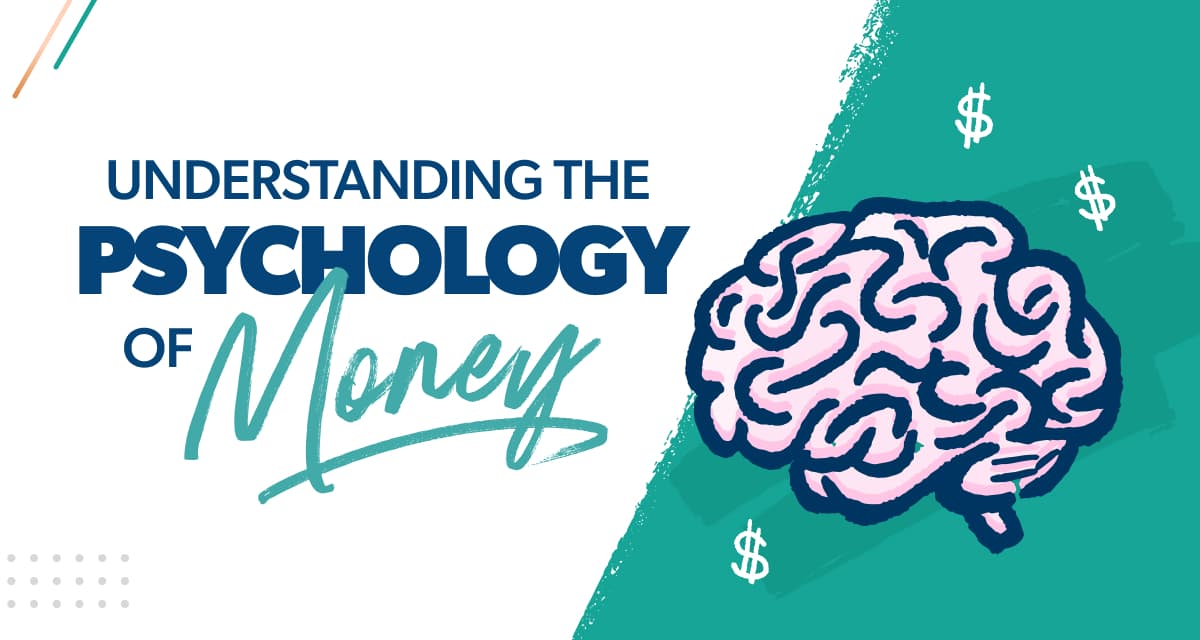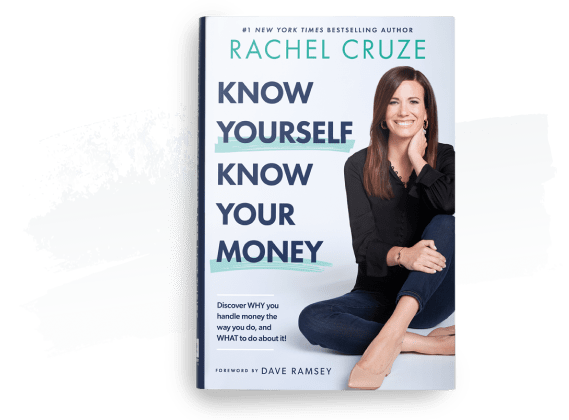Understanding the Psychology of Money
7 Min Read | Jul 26, 2024

We’re all wired differently. That includes our motivations, fears, dreams, and even how we think about and deal with money! That last one is called the psychology of money, and the more we know about it, the easier it is to make whatever changes we need to really win with money.
What Is the Psychology of Money?
The psychology of money is the study of our thoughts about and behavior with money.
I’ve been fascinated by this topic since I was a kid. I’ve watched it play out in real life as I’ve coached people over the past 15 years—and I really kicked up my study on the psychology of money for my book, Know Yourself, Know Your Money.
Again and again, I’ve seen how much our personality and past affect our thoughts and behaviors. And how empowering it is to own these things so we can make the changes we need. Which brings me to my next point . . .
Why the Psychology of Money Matters
Diving into the psychology of money helps us see our strengths, weaknesses, perceptions and tendencies—so we can understand where we’re coming from and how to get where we want to be.If you want to reach financial goals, get on the same page with your spouse about money, spend without guilt, stop overspending, budget better, or ditch your money stress, start with your money psychology!
How Your Past Affects Your Money Psychology
The way you deal with and think about money today is affected by your past. That means what happened in your home as you grew up has shaped some of your money psychology today. This includes several things like:
- How your parents talked about money
- If your parents avoided talking about money
- Spending habits you saw
- Money fights you heard
- A general feeling of stress or peace about household finances
Now, I’m not saying that if you’ve got a problem with impulse buying you can blame your parents and keep clicking Add to Cart like there’s no tomorrow. Doing that will get you nowhere.
But as you start to uncover how your past relates to your present, you can build a better money mindset and a better future!
Your Money Personality and the Psychology of Money
Personality tests are all over the place these days. You’ve got the Enneagram, DISC, Myers-Briggs—people might even ask you what your Harry Potter house is to try to get to know you better. But if you’re wanting to get to know your money habits better, you need to know your money personality.
That’s right, you’ve got a money personality too! It’s another part of your money psychology. And it’s made up of the 7 Money Tendencies. I want to touch on three of those here.
1. Spender vs. Saver
Most people find it pretty easy to determine if they’re a spender or a saver. Spenders can see so many creative possibilities when it comes to money. This is totally me! Whenever I have extra money, it burns a hole in my pocket and I can’t wait to spend it. But in our defense, spenders are often naturally generous. They love spending money on others too!
On the other hand, a saver’s first instinct is to not spend their money. They feel much better about having money tucked away. Savers are patient and willing to wait to make a purchase.
What’s dangerous for spenders and savers is going to the extremes. As a spender, if you spend everything you make, you’ll be broke. And savers, if you save everything you make, you’ll miss out on a lot of fun experiences that bring joy to your life.
Know Yourself, Know Your Money
Discover why you handle money the way you do—and what to do about it!
2. Nerd vs. Free Spirit
The next money tendency has to do with how you approach budgeting.
Nerds thrive on crunching numbers. They genuinely look forward to making the budget, talking about the budget, and sticking to the budget. It gives them a sense of satisfaction to see where their money is going each month and to find ways to make it work even better. Everything has a nice, neat place, and they love it.
Free spirits are . . . well . . . we’re the party! We don’t get too bogged down in the details, and that frees us up to enjoy life. If you’re a free spirit, just reading the word budget might make you break out in hives, but the shopping and entertainment categories are basically your love language. Free spirits like to live life to the fullest.
It's honestly super helpful (though also super frustrating) to have one of each in a marriage. (I’m a free spirit. My husband Winston is a nerd.) Just make sure you have regular budget meetings and actually listen to each other. You each have something unique and valuable to bring—so bring it.
3. Safety vs. Status
Here’s a deep question about your money psychology: Are you financially motivated by safety or by status? For this one, you may have to do some real soul-searching. Be honest with yourself as you think through what motivates you when you spend or save.
People who value safety want the security that money can bring. They want to know they can withstand job loss, a medical emergency or even just a dip in income.
Wanting financial security makes perfect sense. But if you’re a safety person, just be careful you don’t turn your need for stability into living your life in fear.
If you’re more motivated by status, you see money as a way to look successful. A beautiful home, high-end clothes, a fancy car, incredible vacations—these all tell others (and you!) that you’re winning with money and with life. You guys, this is me! And I just have to remind myself that the stuff I own doesn’t define me as a person.
I want to make this clear: Owning nice things is fine. Just don’t let them own you. I get wanting others to think you’ve got your life together, but at the end of the day—it’s way more important to be wealthy than to look rich. Don’t ever risk real financial success and security just to show off.
How the Psychology of Money Affects Your Decisions
The truth is that money is just a magnifying glass—it makes you more of who you already are.
If you’re kind and generous, you’ll be even more kind and generous with money. If you’re rude and self-centered, you’ll be even more rude and self-centered with money. Money is simply a tool: You get to determine what to do with it.
And quite honestly, if you want to make the most of this tool, you need to budget. I don’t care how you grew up or what your money tendencies are—you need to budget! Every dollar you make. Every month of the year.
A budget is a plan for your money. It helps you see your current behaviors with money and make better decisions so you can reach your money goals.
Go ahead and download EveryDollar today. Our free budget app is built to help everyone make—and keep—a monthly budget. Spenders and savers. Nerds and free spirits. Everyone!
And keep working to understand how the psychology of money affects you and what you can do to build better habits and make better decisions! It’s worth the work.
Save more. Spend better. Budget confidently.
Get EveryDollar: the free app that makes creating—and keeping—a budget simple. (Yes, please.)




